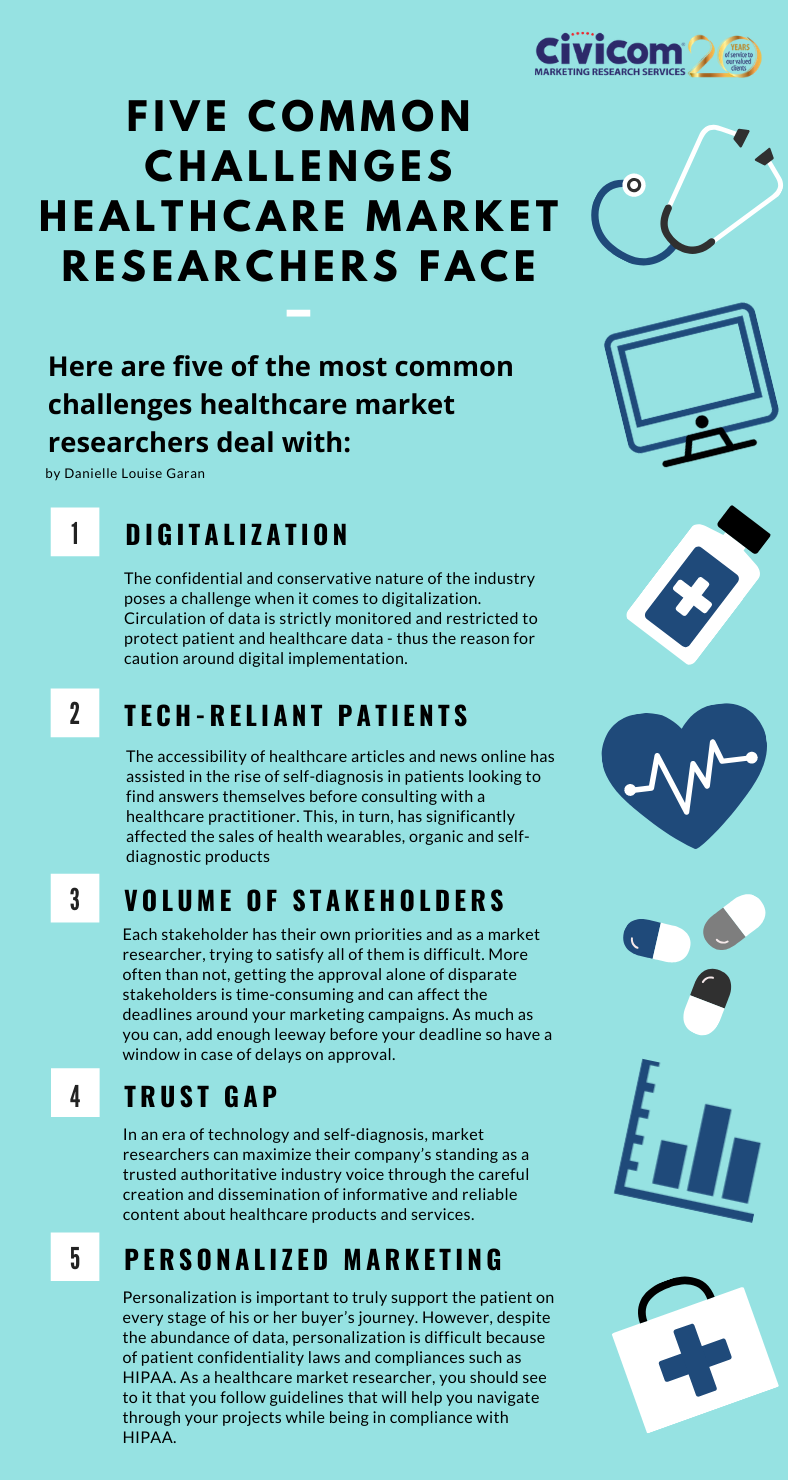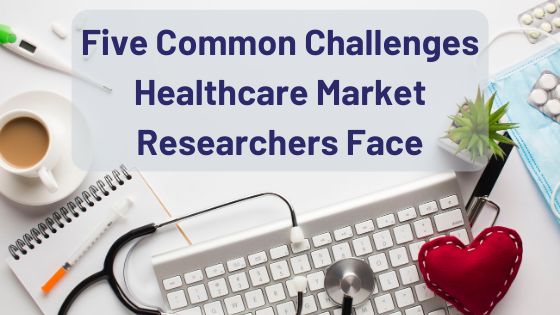Despite the fact that there are now more methodologies than ever to target and reach specific audiences and clients, healthcare market researchers still find it difficult to penetrate the industry because it is very much conservative and traditional in nature. This makes it more challenging to tap into the mind of clients and consumers and why they make their healthcare related decisions.
Here are five of the most common challenges healthcare market researchers deal with:
-
Digitalization
Despite the vast amounts of data collected in various healthcare settings, it is often held on different systems, mostly still in paper files dispersed in several institutions. The confidential and conservative nature of the industry poses a challenge when it comes to digitalization. Circulation of data is strictly monitored and restricted to protect patient and healthcare data - thus the reason for caution around digital implementation. Considering this and the complexity of the audience involved makes it difficult to adopt multi-channel marketing globally.
The important thing here is to ensure that the right channel is being used to reach the right audience at the right time. It may be traditional, through the stationary web, or via mobile research tools; there is always that one methodology that will suit your study best. There may be instances where the best option is to go with a digital method for a specific campaign targeting specific people and there will be times where a combination of both digital and traditional methods is more effective. However, it is a fact that going digital has greatly helped marketers overcome barriers and reach and connect with different consumers across regions.
-
Tech-reliant patients
Technology has allowed more and more patients to routinely research diseases, symptoms, medication, and healthcare providers online. The accessibility of healthcare articles and news online has assisted in the rise of self-diagnosis in patients looking to find answers themselves before consulting with a healthcare practitioner. This, in turn, has significantly affected the sales of health wearables, organic and self-diagnostic products. However, self-diagnosing poses a risk due to the rising number of questionable or less credible sources of information online.
Additionally, negative reviews on online forums, some of which may simply be emotionally driven or groundless, can affect a healthcare provider, their product or a practitioner adversely.
Put out collaterals or blogs that are patient-centric and are backed by research to effectively build your credibility and online presence. Really look into survey answers or community insights to get a better understanding of where these people are coming from.

-
Volume of stakeholders
The healthcare industry is composed of large numbers of stakeholders. Each stakeholder has their own priorities and as a market researcher, trying to satisfy all of them is difficult. However, in order to make sure that you got the message correctly and all of your information is presented accurately, you are required to get the approval of a number of stakeholders. More often than not, getting the approval alone of disparate stakeholders is time-consuming and can affect the deadlines around your marketing campaigns. As much as you can, add enough leeway before your deadline so have a window in case of delays on approval.
-
Trust gap
Like any other industry, without trust from your audience, you have nothing. This is even more applicable in a highly regulated and confidential environment such as the healthcare industry. Basically, trust is gained through positive, easily digestible communications backed-up by research. In an era of technology and self-diagnosis, market researchers can maximize their company’s standing as a trusted authoritative industry voice through the careful creation and dissemination of informative and reliable content about healthcare products and services. It’s challenging to win and maintain your consumer’s trust but it can be easily lost so remember to tread lightly and always be extra careful especially in an industry where reputation is everything.
-
Personalized marketing
Healthcare market researchers would need better access to data in order to accurately market products and services to its consumers through personalization. And personalization is important to truly support the patient on every stage of his or her buyer’s journey. However, despite the abundance of data, personalization is difficult because of patient confidentiality laws and compliances such as HIPAA. As a healthcare market researcher, you should see to it that you follow guidelines that will help you navigate through your projects while being in compliance with HIPAA.
The healthcare industry will always face continuously evolving challenges and market researchers must learn to adapt to newly empowered patients and healthcare providers all the while adhering to this industry’s growing number of guidelines. It may take a slower turn for this industry to adopt digital modernization, but innovations happening around patient care and patient-centricity is a sign that the industry has the potential to think outside the box or is open to investing in partners who do.
Sources: tagwww.com, econsustancy.com, gilliankenny.com, yourstory.com



